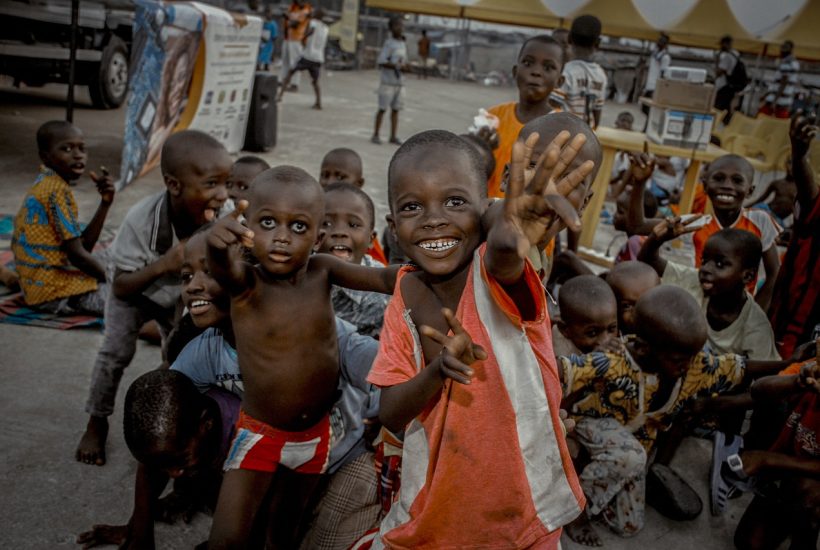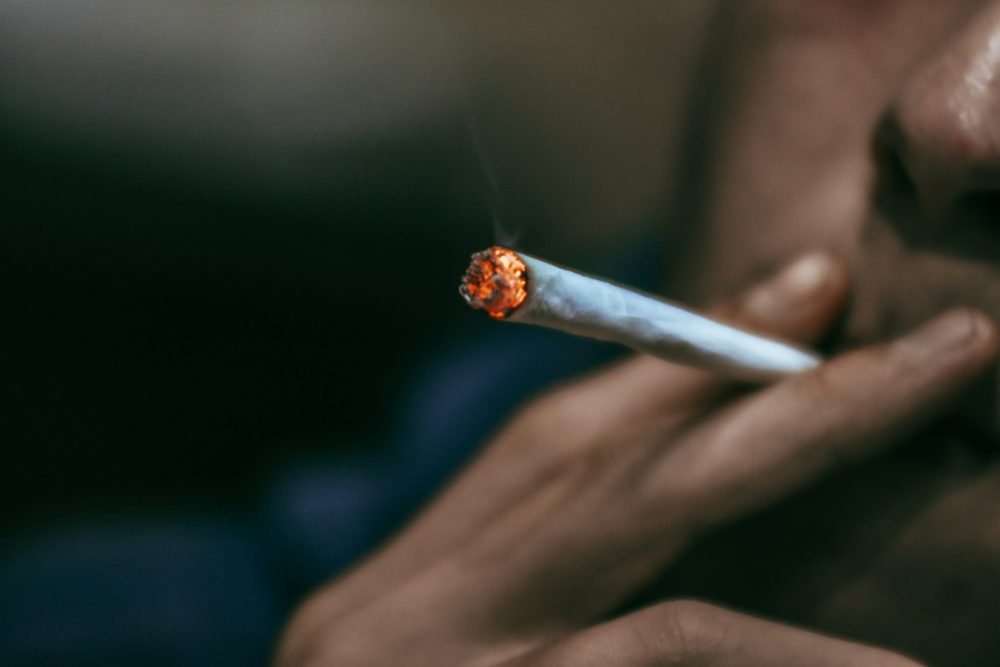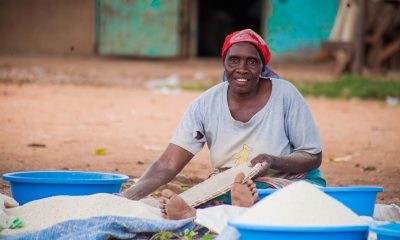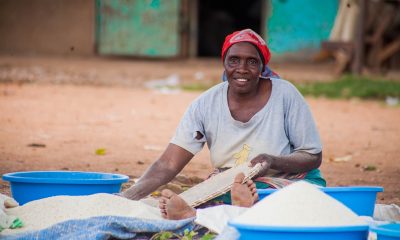Africa
African Development Bank Supports Government Efforts to Relieve Internally Displaced Persons
The increase in the number of internally displaced people in Burkina Faso has led to an increase in various needs, mainly food, but also shelter and survival materials. The African Development Bank has set up the Emergency Humanitarian Assistance Project for Internally Displaced Persons (PAPDI). A grant of $500,000 from the Bank’s Special Relief Fund has been allocated to this operation.

On the north-eastern outskirts of Ouahigouya, the capital of the northern Yatenga region, the size of the two sites hosting internally displaced persons (IDPs) indicates the scale of the needs to be met to address the humanitarian crisis resulting from the terrorist attacks. Since 2015, Burkina Faso, like some Sahelian countries, has been facing an acute security crisis causing massive population movements in almost all regions of the country.
The first site, which opened in March 2020, hosts 6,000 people mainly from the commune of Barga. The second site, which opened in December 2021, will house 10,000 people, most of them from the town of Titao. According to the latest statistics from the Burkina Faso government, there were 1.52 million internally displaced people in the country at the end of April 2022 and 3.5 million people in need of humanitarian assistance.
Of the country’s thirteen regions, the North ranked third in terms of the number of internally displaced persons (222,000, 23% of whom were women and 60% of whom were children), after the Centre-Nord and the Sahel. Ouahigouya began receiving them in 2018. Over the months, the flow has continued to increase. By April 2022, the city of 100,000 had an additional 130,000 IDPs, mostly women, and children.
The story is almost identical for all IDPs, except for a few details: a precipitous departure, either as a precautionary measure or under threat from armed groups, the regret of having lost everything, the feeling of abandoning a part of oneself and the uncertainty of an ultimate return to the land of one’s ancestors.
In Pobe-Mengao, a hundred kilometers from Ouahigouya, Azèta Sawadogo lived through hellish evenings a year ago, with the regular crackling of weapons until the early morning. Scared, dozens of residents decided to leave. We couldn’t stay any longer,” she says, stunned. On the way, the armed men stopped us, before releasing us at nightfall. We were relieved to reach Ouahigouya.
The increase in the number of displaced people has led to an increase in various needs, mainly food, but also shelter and survival materials, education, health and nutrition, and water, hygiene, and sanitation. Azèta Sawadogo is in disarray: “We are facing shortages. Not enough to eat, no wood to cook with and when possible, there is little water.
Faced with the continuous flow of new arrivals, the reception infrastructure is proving to be insufficient, despite the efforts of the authorities. Fortunately, some of the displaced are enjoying the hospitality of generous families. Due to the lack of space in the planned sites, tents are set up in family concessions. Others are obliged to rent houses in town, which they manage to pay for thanks to the income-generating activities they have had to undertake.
Read more on the subject and find the latest economic news of the day with the Born2Invest mobile app.
The Bank at the bedside of the displaced
Faced with these difficulties, humanitarian actors and development partners have mobilized to help the government overcome this crisis. The African Development Bank has set up the Emergency Humanitarian Assistance Project for Internally Displaced Persons (PAPDI). The objective is to help improve the living conditions and resilience of these people in the North-Central and Northern regions. A grant of $500,000 from the Bank’s Special Relief Fund has been allocated to this operation, the implementation of which is entrusted to the National Council for Emergency Relief and Rehabilitation (CONASUR).
The African Development Bank’s support has enabled the acquisition of 358 tons of cereals to meet the food needs of at least 40,000 internally displaced persons. It has also financed the construction of 300 shelters and provided 1,000 displaced households with mats and blankets, mainly for children, women and the elderly, whose vulnerability has increased as a result of the bad weather affecting this part of the country.
“Thanks to this support, each household in the target population has received a three-month food ration. The Bank has also built boreholes that benefit not only the displaced but also the host population in a town that traditionally faces water shortages,” said Léonard Sawadogo, Director of Social Action in Ouahigouya. In addition, because of the precarious hygiene and sanitation conditions in the shelter sites, 500 households received soap and other hygiene products.
Some IDPs have taken up income-generating activities
On the morning of August 8th, 2022, while he was recounting the benefits of the African Development Bank’s support, Léonard Sawadogo was already apprehensive about the situation in the days ahead. A few hours earlier, 52 kilometers away, Séguénéga had suffered its first terrorist attack, forcing many of its inhabitants to leave the commune. “Many of them will surely head for Ouahigouya,” he said, emphasizing the need for public authorities and partners, including the African Development Bank, to continue their efforts to care for the internally displaced.
__
(Featured image by kassoum_kone via Pixabay)
DISCLAIMER: This article was written by a third party contributor and does not reflect the opinion of Born2Invest, its management, staff or its associates. Please review our disclaimer for more information.
This article may include forward-looking statements. These forward-looking statements generally are identified by the words “believe,” “project,” “estimate,” “become,” “plan,” “will,” and similar expressions. These forward-looking statements involve known and unknown risks as well as uncertainties, including those discussed in the following cautionary statements and elsewhere in this article and on this site. Although the Company may believe that its expectations are based on reasonable assumptions, the actual results that the Company may achieve may differ materially from any forward-looking statements, which reflect the opinions of the management of the Company only as of the date hereof. Additionally, please make sure to read these important disclosures.
First published in lefaso.net, a third-party contributor translated and adapted the article from the original. In case of discrepancy, the original will prevail.
Although we made reasonable efforts to provide accurate translations, some parts may be incorrect. Born2Invest assumes no responsibility for errors, omissions or ambiguities in the translations provided on this website. Any person or entity relying on translated content does so at their own risk. Born2Invest is not responsible for losses caused by such reliance on the accuracy or reliability of translated information. If you wish to report an error or inaccuracy in the translation, we encourage you to contact us.

-

 Cannabis2 weeks ago
Cannabis2 weeks agoKONOPEX Expo 2026: Celebrating Europe’s New Era of Legal Cannabis
-

 Biotech18 hours ago
Biotech18 hours agoVolatile Outlook for Enlivex Therapeutics as Investors Await Clinical Catalysts
-

 Impact Investing1 week ago
Impact Investing1 week agoInter IKEA Launches Electric Truck Fleet to Decarbonize Heavy-Duty Logistics in Italy
-

 Cannabis2 weeks ago
Cannabis2 weeks agoSnowtorious Krypton Enters the Polish Medical Cannabis Market
























